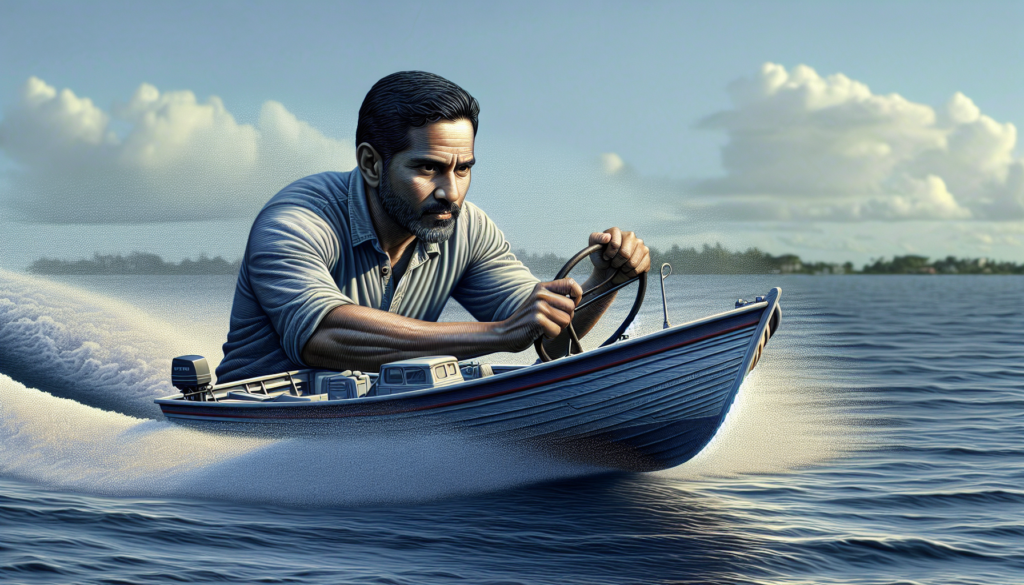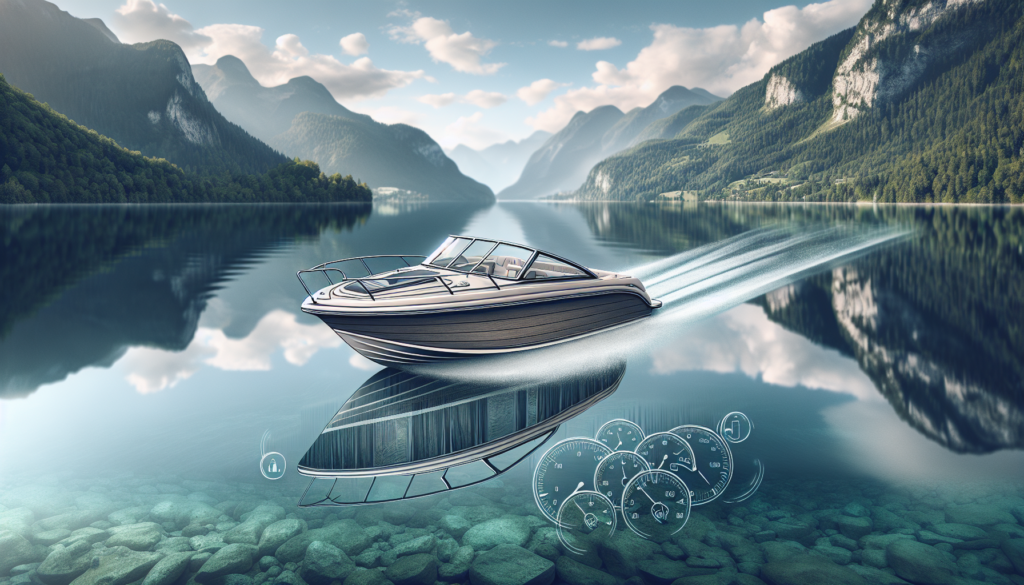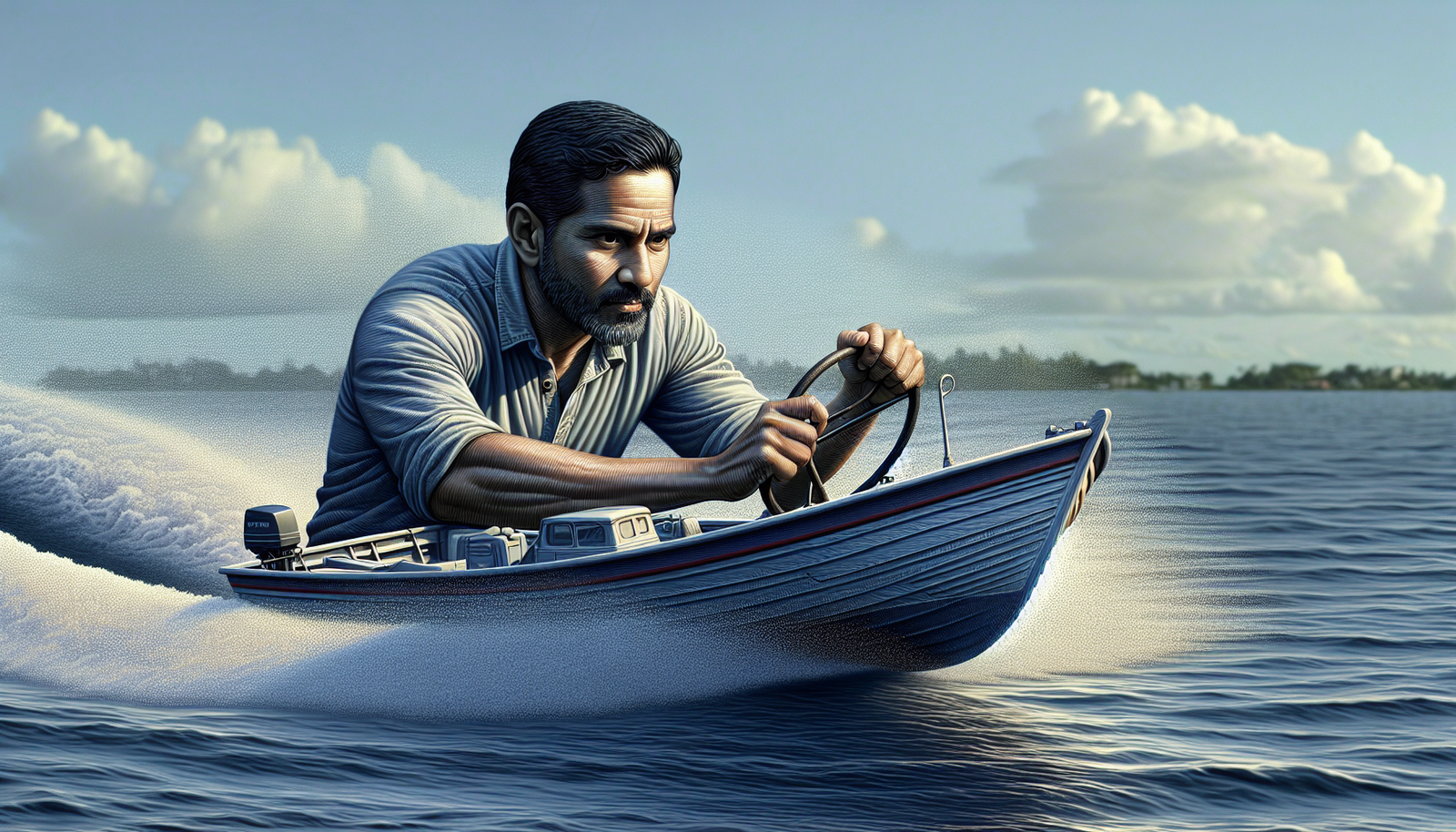Attention, maritime devotees! Here’s some valuable information tailored just for you. “Top Ways to Minimize Fuel Consumption While Boating” is an article that arms you with essential knowledge on how to prolong your boating experiences by reducing fuel use. Whether you’re a seasoned mariner seeking to cut costs or a newly passionate boater looking to improve efficiency, this article shares insightful tips that are beneficial for anyone who loves to ply the waters on their sleek vessel. Now, ready your anchors and prepare to set sail on this journey of learning the secrets to savvy sailing!

Understanding the Basics of Fuel Consumption
When it comes to boating, understanding fuel consumption is essential. It’s more than just keeping an eye on your fuel gauge; it involves understanding several factors that can influence how efficiently your boat uses fuel. Understanding these basics will allow you to boat more efficiently, saving you money and helping to preserve the environment.
Recognizing the factors affecting fuel efficiency
Plenty of components can affect your boat’s overall fuel efficiency. These include things like your boat’s weight, speed, the condition of your engine and propellers, and even your route. Recognizing these factors can help you make adjustments to improve your fuel consumption and overall boating experience.
The role of boat weight in fuel consumption
The weight of your boat can greatly affect its fuel consumption. Heavier boats require more power to move, which consumes more fuel. By keeping your boat’s weight down, you can considerably increase its fuel efficiency. Keep in mind, however, that safety should always come first and never compromise your boat’s stability to save on fuel.
Understanding fuel consumption rate per engine hour
Knowing the fuel consumption rate per engine hour is crucial for managing your fuel efficiency. This is measured in gallons of fuel used per hour of engine operation. A boat that uses less fuel per engine hour is more fuel-efficient. This will depend on your motor’s make and model, the load it’s carrying, and how it’s used.
Choosing the Right Type of Boat
Your boat selection plays a critical role in its fuel efficiency. Aside from the general rule that smaller boats tend to consume less fuel, the design and materials of your boat can greatly affect its fuel consumption.
Considering boat size and fuel efficiency
While bigger boats might provide more comfort and space, they also require more fuel. On the other hand, smaller boats require less fuel, meaning they usually offer better fuel efficiency. However, comfort should not be entirely sacrificed for fuel efficiency – balancing your needs is key when choosing the right boat size.
Impact of the hull design on fuel consumption
The design of your boat’s hull can greatly affect its fuel efficiency. Flat-bottomed boats, for example, tend to plane more easily and require less energy to move, making them more fuel-efficient. On the other hand, V-shaped hulls carve through waves better, providing a smoother ride, but at the cost of consuming more fuel.
Benefits of multi-hull boats for fuel efficiency
Multi-hull boats, like catamarans and trimarans, often provide better fuel efficiency compared to their single-hull counterparts. This is because they are often lighter and offer less water resistance, allowing them to move more efficiently.
Opting for lighter construction materials
Lighter materials often mean a lighter boat, which can improve fuel efficiency. Modern materials like fibreglass, aluminium, and composite materials can provide a strong and lightweight construction that can improve your boat’s fuel efficiency.

Regular Maintenance of the Boat
A well-maintained boat will always perform better, providing better fuel efficiency compared to a poorly maintained counterpart.
How regular servicing improves fuel efficiency
Regular servicing helps ensure your boat’s engine is running smoothly and efficiently. Routine checks allow you to spot and fix any issues that might affect the performance of the engine, helping to improve fuel consumption.
Importance of hull cleaning
A clean hull is vital for good fuel efficiency. Barnacles, seaweed, and other marine growth can increase water resistance and force your engine to work harder, which can increase fuel consumption.
Significance of engine tuning and upkeep
A well-tuned engine will operate at its optimal performance, ensuring better fuel efficiency. Regular engine tune-ups can also prevent problems from escalating, saving you money on costly repair bills in the future.
Proper Engine Usage
Correct engine usage can significantly improve fuel efficiency. Understanding your engine and how to operate it efficiently can go a long way in saving fuel.
Ideal RPM for fuel optimization
Running your engine at the ideal RPM (revolutions per minute) can greatly improve fuel efficiency. Running the engine too fast can consume more fuel, while running it too slow might not provide the necessary power.
Using trim and tilt properly
Proper use of trim and tilt can help the boat run more efficiently. By adjusting the boat’s angle in the water, you can reduce water resistance and improve fuel efficiency. Remember, every boat is different, so finding the right angle may require some trial and error.
Avoiding extended idling periods
Running your boat’s engine while not moving, or idling, can waste significant amounts of fuel. Avoiding extended idling periods can help you save fuel.
Balancing the use of fast acceleration and deceleration
Fast accelerations and decelerations can consume a lot of fuel. By driving your boat at a steady pace and avoiding abrupt speed changes, you can improve your boat’s fuel efficiency.

Efficient Route Planning
Planning your routes efficiently can reduce the distance travelled and, in turn, the amount of fuel used.
Understanding water currents and wind direction
Understanding water currents and wind direction can play a major role in planning your routes. Going against the current or wind can require more power and consume more fuel. By planning your routes with these factors in mind, you can use them to your advantage.
Utilizing GPS for optimal route planning
A GPS system can be a valuable tool for planning your routes. It can help you find the shortest and most efficient route, saving you fuel and time.
Benefits of straight line navigation
Navigating in a straight line, when possible, is the most efficient route. This can significantly reduce the distance travelled and, in turn, fuel consumption.
Reducing Drag
Reducing drag, or the resistance of your boat moving through the water, can greatly improve fuel efficiency.
Understanding what causes drag
Drag can be caused by several factors. This includes the boat’s design, the weight, the hull condition, and even the way you load your boat. Understanding these causes can help you make adjustments to reduce drag.
How to reduce aerodynamic drag
Aerodynamic drag refers to the resistance your boat faces when moving through the air. Some methods to reduce this type of drag include keeping the superstructure sleek and minimizing protrusions like antennas and rods.
Methods to reduce hydrodynamic drag
Hydrodynamic drag is the resistance your boat faces when moving through the water. Some methods to reduce this type of drag include keeping the boat and its hull clean, distributing weight evenly, and maintaining proper trim.

Optimal Loading of the Boat
How you load your boat can have a significant impact on its fuel efficiency.
Impact of weight distribution on fuel efficiency
Improper weight distribution can increase water resistance and can reduce stability, negatively affecting fuel efficiency. Distributing weight evenly across the boat can lead to better fuel efficiency.
Avoiding unnecessary weight
Any extra weight beyond what is necessary can reduce fuel efficiency. Keeping your boat free of unnecessary items can keep the weight down and improve fuel efficiency.
Balancing loads for better efficiency
Balancing your load can improve stability and reduce water resistance, leading to better fuel efficiency. Ensuring that all the weight on your boat is distributed evenly can make a significant difference.
Using Appropriate Propellers
The choice of propellers can have a significant impact on your boat’s fuel consumption.
Match propeller to the engine’s power curve
A propeller that doesn’t match your engine’s power curve can result in poor performance and increased fuel consumption. Make sure that your propeller and engine are a good match for each other.
Select right size and pitch for the propeller
The size and pitch of your propeller can affect your boat’s speed and fuel consumption. A propeller that is too large or with a pitch that is too high can strain the engine and consume more fuel, while a propeller that is too small or with a pitch that is too low may underutilize the engine.
Consider propeller materials and blade count
The material and blade count of your propeller can affect its performance and your boat’s fuel efficiency. Lighter materials like aluminum can improve fuel efficiency, while increasing blade count can improve performance but at the cost of increased fuel consumption.
Employing Fuel Management Systems
Fuel management systems can help you monitor and manage your fuel consumption, helping you to boat more efficiently.
Understanding fuel flow meters
Fuel flow meters provide real-time information about how much fuel your boat is using, allowing you to adjust your boating habits to improve fuel efficiency.
Importance of watching the fuel gauge
Paying attention to your fuel gauge can help you estimate how much fuel you’ve used and how much is left, helping you manage your boating activities more efficiently.
Using digital meters for better accuracy
Digital meters offer more accurate readings compared to analog gauges, helping you better manage your fuel usage.
Practicing Efficient Boating Habits
Finally, adopting good boating habits can go a long way in improving your boat’s fuel efficiency and save money in the long run.
Keeping a constant speed
Rapid changes in speed can consume more fuel. By maintaining a consistent speed, you can Reduce Fuel Consumption.
Adjusting to weather and water conditions
Being able to adjust your boating activities according to the weather and water conditions can help you use less fuel. For example, boating at slower speeds during rough sea conditions can be more fuel-efficient.
Switching off electronics when not needed
Leaving electronics like radios, lights, and GPS systems on when not needed can drain your boat’s battery and cause the engine to use more fuel. Remembering to turn off all unneeded electronics can help save fuel.
Avoiding congested waterways
Congested waterways often mean slower speeds and more idling, both of which can consume more fuel. By avoiding these areas, you can keep your boat moving at a steady speed, improving fuel efficiency.
In conclusion, there are many ways to minimize fuel consumption while boating. By understanding the basics of fuel consumption, choosing the right boat, maintaining it regularly, using the engine efficiently, planning your route, reducing drag, loading the boat optimally, using the correct propellers, employing fuel management systems, and practicing good boating habits, you can improve your boat’s fuel efficiency and enjoy your time on the water without having to worry about running out of fuel.


[…] looking to cut down on your fuel use whilst enjoying time on the open water? In the article “Top Ways To Minimize Fuel Consumption While Boating,” you’ll uncover strategies and tactics crafted by experts to help you achieve just […]